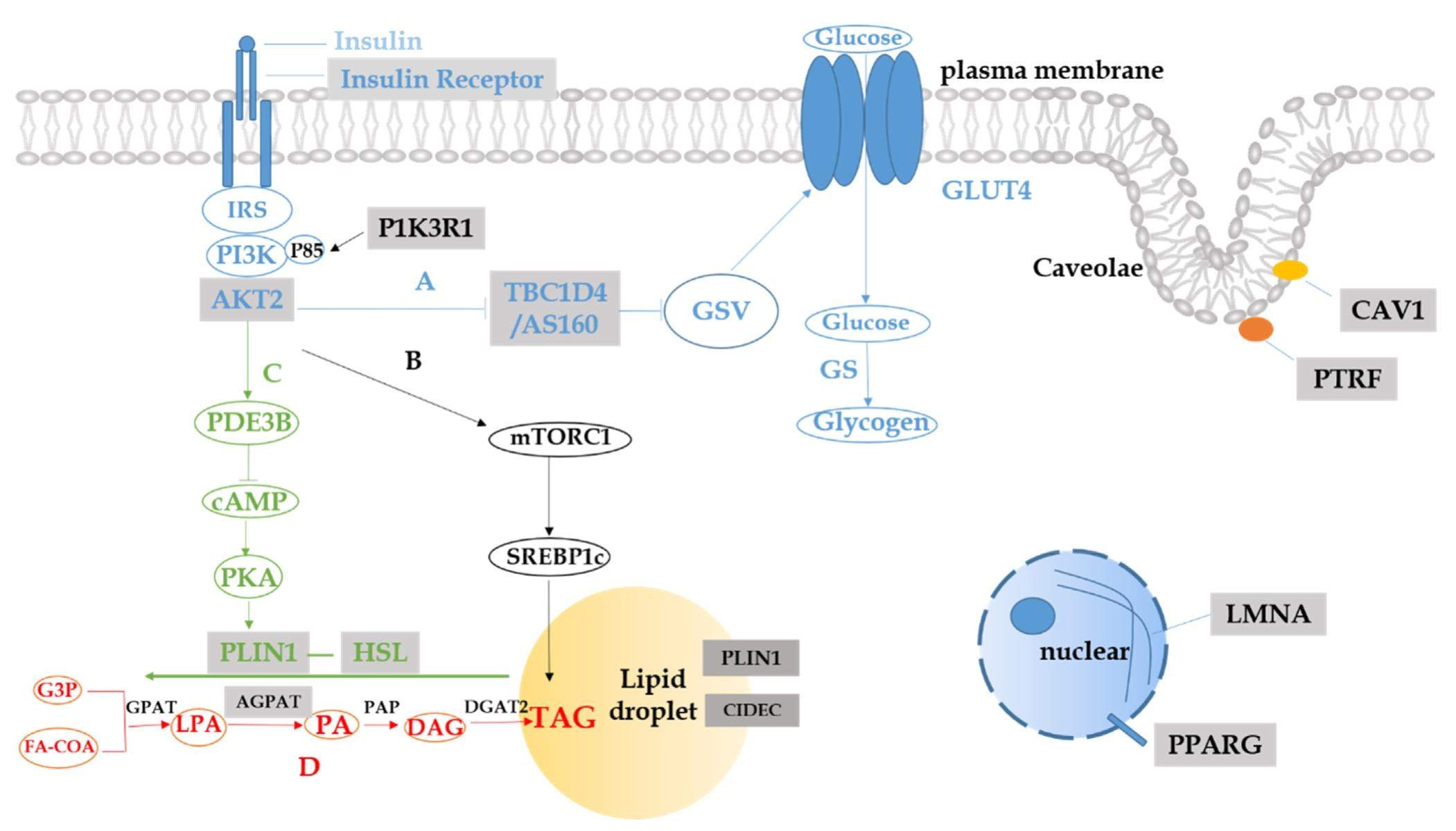
Hereditary severe insulin resistance syndrome: Pathogenesis, pathophysiology, and clinical management


Severe insulin resistance has been linked to some of the most globally prevalent disorders, such as diabetes mellitus, nonalcoholic fatty liver disease, polycystic ovarian syndrome, and hypertension. Hereditary severe insulin resistance syndrome (H-SIRS) is a rare disorder classified into four principal categories: primary insulin receptor defects, lipodystrophies, complex syndromes, and obesity-related H-SIRS. Genes such as INSR, AKT2, TBC1D4, AGPAT2, BSCL2, CAV1, PTRF, LMNA, PPARG, PLIN1, CIDEC, LIPE, PCYT1A, MC4R, LEP, POMC, SH2B1, RECQL2, RECQL3, ALMS1, PCNT, ZMPSTE24, PIK3R1, and POLD1 have been linked to H-SIRS. Its clinical features include insulin resistance, hyperglycemia, hyperandrogenism, severe dyslipidemia, fatty liver, abnormal topography of adipose tissue, and low serum leptin and adiponectin levels. Diagnosis of H-SIRS is based on the presence of typical clinical features associated with the various H-SIRS forms and the identification of mutations in HSIRS-linked genes by genetic testing. Diet therapy, insulin sensitization, exogenous insulin therapy, and leptin replacement therapy have widely been adopted to manage H-SIRS. The rarity of H-SIRS, its highly variable clinical presentation, refusal to be tested for genetic mutations by patients' family members who are not severely sick, unavailability of genetic testing, and testing expenses contribute to the delayed or underdiagnoses of H-SIRS. Early diagnosis facilitates early management of the condition, which results in improved glycemic control and delayed onset of diabetes and other complications related to severe insulin resistance. The use of updated genetic sequencing technologies is recommended, and long-term studies are required for genotype-phenotype differentiation and formulation of diagnostic and treatment protocols.
